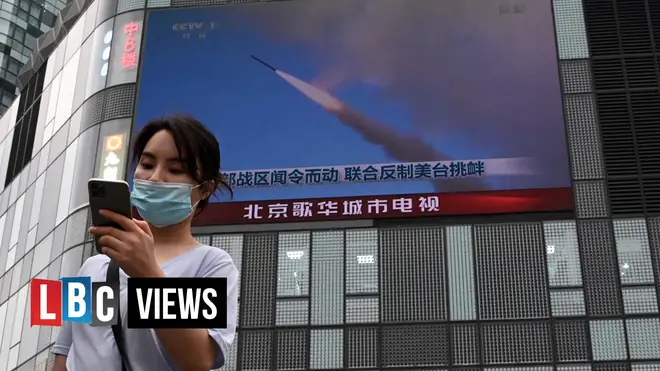
Clive Bull 1am - 4am
12 January 2024, 07:30 | Updated: 12 January 2024, 07:32

No matter the result of Taiwan’s January 13 election, some challenges to the fragile cross-Strait status quo between China and Taiwan should be anticipated.
William Lai from the ruling Democratic Progressive Party will likely be elected Taiwan’s next president, with polling showing approximately 40 per cent of Taiwanese support his candidacy.
Despite stating his willingness to work constructively with Beijing if elected, he has been labelled a “troublemaker through and through” by CCP officials for his August visit to the United States and his pro-Washington stance.
His running mate has declared “a diehard Taiwan independence separatist” and barred from entering China.
During his New Year’s Eve address, CCP General Secretary Xi Jinping hardened his stance on Taiwan, stating, “the reunification of [China and Taiwan] is a "historical inevitability" and that people on both sides of the Taiwan Strait are “members of one and the same family.”
Days later, Taiwan’s Ministry of National Defense announced multiple PRC spy balloons had flown over the island.
This follows China’s military conducting the largest training exercise ever near Taiwan in September 2023, with 20 naval vessels simulating a blockade of the island and over a hundred aircraft flying near or over Taiwan.
Beijing’s economic pressure campaign against Taiwan has also worsened during the run-up to the election, with China suspending tariff cuts on Taiwanese petrochemical product imports and announcing plans to end trade concessions on agriculture, textiles, auto parts, and other machinery from Taiwan - all with the singular aim of halting Lai's potential victory.
According to a recent analysis by Bloomberg Economics, the economic cost of a PRC invasion of Taiwan would total $10 trillion, approximately 10 per cent of global GDP.
Delays in Taiwan’s production of semiconductors, the brains of modern electronics which add an estimated 5.6 per cent to global total value, would contract the economy by $6 trillion.
Trade between the UK and Taiwan, which totalled 8.6 billion GBP in 2022, would slow or end completely.
The Pentagon estimates upwards of 500,000 deaths resulting from a conflict in Taiwan and the need to evacuate potentially hundreds of thousands of civilians, including many of the estimated 1.7 million UK citizens who reside in the Indo-Pacific.
This week, I released my new report at the Henry Jackson Society, in which I laid out what should be the UK's approach following the weekend's result in which I laid out a road map for security in the region following the election and certain CCP covert action.
UK policy vis-à-vis Taiwan to ensure there is no disruption of the existing status quo must be based on realities, both geopolitical and domestic.
While Taiwan is self-governed and, therefore, de facto independent, encouraging Taipei to declare de jure independence is not in the UK’s national interest.
Doing so would cross Beijing’s red line and almost certainly precipitate regional conflict, which would have a catastrophic global impact. But that doesn't mean the UK shouldn't clearly articulate to Beijing that forced reunification or other grey zone activities impact British national interests.
Beijing has begun sanction-proofing its economy through its Dual Circulation economic strategy, which curtails mutually beneficial trade and develops controllable supply chains favouring China.
This is particularly relevant as the UK and its closest partners continue to maintain economic interdependencies with China.
Most pressing for this side of the Atlantic is the need for the UK and its European allies should share more responsibility for arming Ukraine, which will allow Washington to focus on providing hardware and armaments to support Taiwan’s defence against invasion.
The UK should be more ambitious with its - ever-shrinking - navy and put naval assets in the Indo-Pacific to deter PRC aggression toward Taiwan.
Whatever the result this weekend, the UK cannot afford to be complacent with the Washington tilt in Taiwan public opinion.
Amongst the continued depreciating stability around the world, we must maintain the status quo in Taiwan.
LBC Views provides a platform for diverse opinions on current affairs and matters of public interest. The views expressed are those of the authors and do not necessarily reflect the official LBC position.
To contact us email views@lbc.co.uk